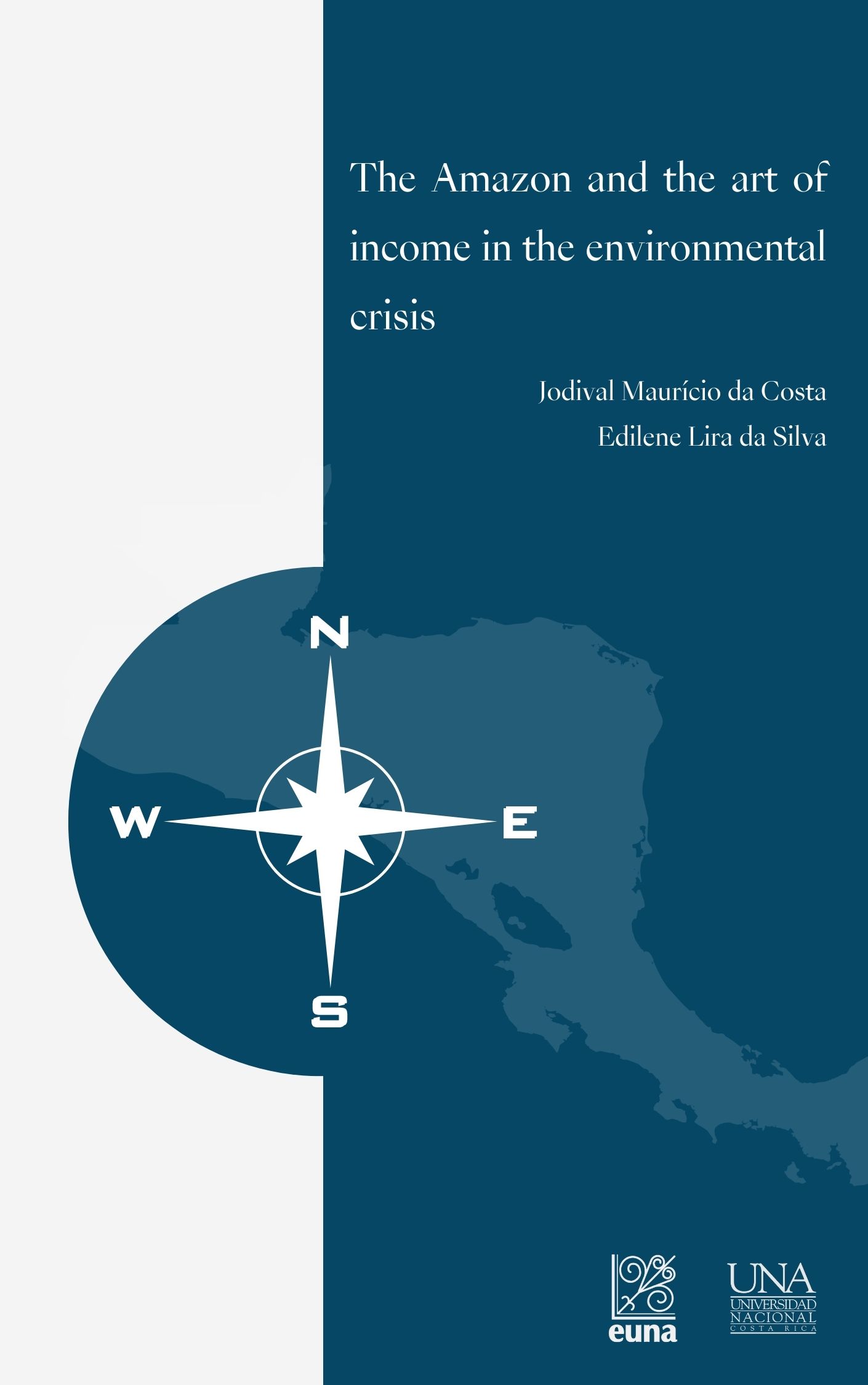La Amazonía y el la arte del ingreso en la crisis ambiental
DOI:
https://doi.org/10.15359/rgac.70-1.1Keywords:
Amazon, Environmental crisis, Art of income, Environmental and marketAbstract
Two objectives are integrated in this work. The first objective is to discuss the diffusion of values regarding social-environmental responsibility in the current public sphere and how they confer comparative advantages in obtaining differentiated income by companies. The second objective is to apply this discussion to the Amazon by exemplifying the relationship that Natura company develops with traditional Pan-Amazon communities, as well as the notion of sustainability and how the Amazon can be a strategic region when it comes to environmental crises. The methodology used was based on scientific articles, magazine publications directly linked to the environmental balance of the companies and reports of the Natura company that were published in their website. We concluded that the way to produce market singularities is increasingly due to the combination of production and value diffusion in the public sphere, including the symbolic appropriation of the strategic Spaces of production.
References
Bauman, Z. (2001). Modernidade Líquida. Zahar.
Becker, B., Costa, F. A. y Costa, W. M. (2009). Um projeto para a Amazônia. CGEE.
Beck, U. (2011). Sociedade de Risco: rumo a uma outra modernidade. Editora 34.
Foucault, M. (2008). Nascimento da Biopolítica. Martins Fontes. Giddens, A. (1991). As consequências da Modernidade. Editora Unesp.
Governo do Estado do Amapá. (1997). LEI Nº 392, de 11/12/1997 Dispõe sobre a criação da Reserva de Desenvolvimento Sustentável - RDS do Rio Iratapuru, nos Municípios de Laranjal do Jari, Mazagão e Amapari, no Estado do Amapá. Available in: http://oads.org.br/ leis/3435.pdf
Harvey, D. (2005). A arte da renda: a globalização e a transformação da cultura em como dities. In: Harvey, D. (author). A produção capital- ista do espaço pp. 219-239. Annablume.
Lefebvre, H. (2002). La Survie du Capitalisme: La reproduction des rap- ports de production. 3.ed. Económica.
Leff, E. (2006). Racionalidade Ambiental: a reapropriação social da na- tureza. Bertrand Brasil.
Marx, K. (2009). A metafísica da economia política. In: Marx, K. (author). Miséria da Filosofia: resposta à Filosofia da miséria do Sr. Proud- hon, pp. 119-192. Expressão Popular.
Moura, G. G. (2017). Manejo de mundos e gerenciamento costeiro na Amazônia: reflexões a partir de um diálogo entre etnooceanografia e etnodesenvolvimento. In: Costa, J. M (org). Amazônia: olhares sobre o território e a região. pp. 257-295. Autografia/Editora da Unifap.
Natura & Co. (2014). Relatório Anual. Available in: https://ri.naturaeco. com/resultados-e-apresentacoes/central-de-resultados/
Natura & Co. (2017). Relatório Anual. Available in: https://ri.naturaeco. com/resultados-e-apresentacoes/central-de-resultados/
Natura & Co. (2018). Relatório Anual. Available in: https://ri.naturaeco. com/resultados-e-apresentacoes/central-de-resultados/
Natura & Co. (2019). Relatório Anual. Available in: https://static.rede.natura.net/html/home/2020/br_09/relatorio-anual-2019/natura_annu- al_report_2019.pdf
Natura & Co. (2020). Relatório Anual. Available in: https://static.rede.natura.net/html/sitecf/br/11_2021/relatorio_anual/Annual_Report_ Natura_GRI_2020.pdf
Porto-Gonçalves, C. W. (2006). A globalização da natureza e a natureza da globalização. Civilização Brasileira.
Staff, C.K. 2018. 2018 Global 100: Most Sustainable Corporations outper- form and outlive. Corporate Knights: The Company for Clean Capi- talism. Available in: https://www.corporateknights.com/wp-content/uploads/2014/07/Media-Release_2018_G100_Final.pdf
Strauss, K. (2018). Natura é a 14ª empresa mais sustentável do mundo. Forbes Brasil. Available in: https://forbes.com.br/listas/2018/01/ natura-e-a-14a-empresa-mais-sustentavel-do-mundo/

Downloads
Published
How to Cite
Issue
Section
License
Proposed policy for journals offering Open Access
Authors publishing their works in the Journal acknowledge and agree to the following terms:
a) Authors retain the copyrights to their works and guarantee the Journal the right to be the first to publish their works, under the Creative Commons License Attribution-NonCommercial-ShareAlike 4.0 International, CC BY-NC-SA 4.0 International (https://creativecommons.org/licenses/by-nc-sa/4.0/deed.es), which allows others to share works upon complying with the acknowledgment of authorship and mention of the Journal as the original publisher of the work.
b) Authors are permitted to separately establish additional agreements for the non-exclusive distribution of the official edition of the work published in the Journal (for example, authors may desire to place the work in an institutional repository or incorporate it into a book that is to published elsewhere) so long they acknowledgment to recognize the Journal as the original publisher. The aforementioned additional agreements must respect the terms of the non-profit character and sharing philosophy of the original license (CC BY-NC-SA 4.0 International, https://creativecommons.org/licenses/by-nc-sa/4.0/deed.es).
c) Authors are encouraged to archive the post-print or editor/PDF version in Open Access repositories.





 REVGEO is licensed under https://creativecommons.org/licenses/by-nc-sa/4.0/deed.es
REVGEO is licensed under https://creativecommons.org/licenses/by-nc-sa/4.0/deed.es
.svg_4.png)

_(1).png)
_(1)_(1)_(1)_1.png)
(2)(1)(1)(1).png)
